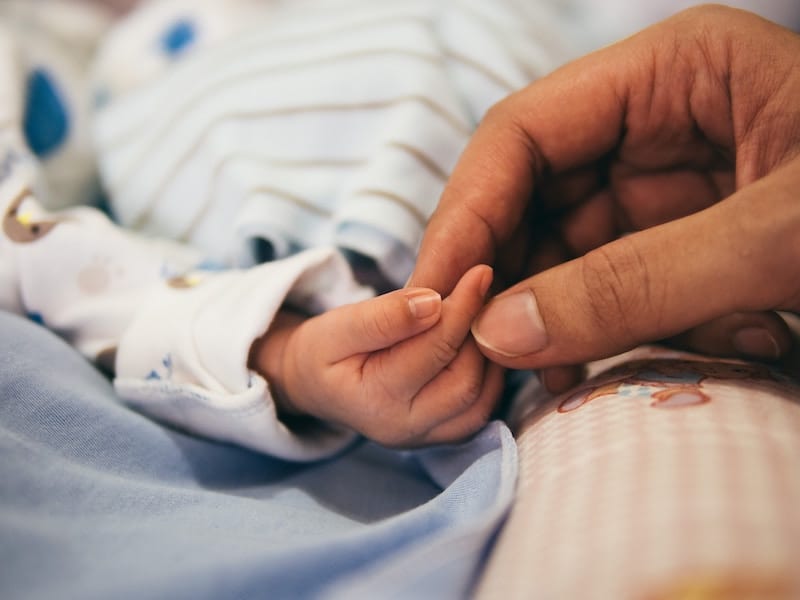
The Importance of Caregiver and Child Attachment
Written by Andrea Haffner, M.A., Associate Marriage and Family Therapist
“Trust is the foundation for a secure attachment. It is also how home (and all that means) is carried with us wherever we go.”
-Ruth Newton, The Attachment Connection
Attachment between children and their caregivers can be understood as a mutually secure connection, established over time from birth into the early years of a child’s life, and beyond. During infancy, attachment grows through eye contact, through touch and closeness, through hearing and mirroring one another. It grows when parents soothe and attune to their baby’s needs in daily life. Through this developing attunement a baby comes to feel that her needs will be largely understood and met. She thus feels a sense of security and trust in her caregivers, one that gradually extends to a sense of security in herself and trust in her world. Parents also can be deeply affected by the attachment process and the sense of closeness, efficacy, and sometimes, the healing it can bring to them.
In addition to its profound psychological benefits, the attachment relationship plays a critical role in a baby’s biological and neurological development. At birth, babies are completely dependent on their caregivers to help them manage and tolerate overwhelming emotional and physical states. When parents respond attentively to their babies’ needs, they are participating in co-regulation, wherein they are helping babies’ minds and bodies shift from a state of distress to a greater sense of calm, organization, and balance. Self-regulation is an ability that is learned very gradually, over time, through relationship. When parents regularly attune and attend to their babies, they are positively participating in the vital development of babies’ nervous systems, as well as brain development and growth of other physiological functions. Relationship quite literally helps babies grow.
The attachment process unfolds uniquely for every family and every child. Connection can take time and can be a bumpy road, filled with misses, doubts, and fears. Some challenges to attachment can include traumatic birth experiences or other health concerns for mothers or babies. Differences in temperament between babies and their caregivers can create challenges in getting to know and understand one another. Postpartum mood disorders such as baby blues, depression and anxiety are common in mothers as well as fathers and can, at times, interfere with the ability for a parent and baby to find one another. Bringing a baby into the world also brings up a parent’s own experiences of early relationship. A parent with a traumatic or otherwise difficult family history might find that, as much as they want to be a present parent, the relationship with their child evokes fear, anxiety, or numbness.
Parent-child psychotherapy can be helpful when the connection between mothers or fathers and babies feels hard. In this dyadic therapy, both baby and caregiver are supported in their process of seeking and building connection. In family sessions that involve both child-led floor time and conversation, parents have the opportunity to reflect upon what they observe in their child, what they observe in themselves, and what they see and feel in the relationship. The therapist can assist in exploring the feelings that are evoked in the session and supporting the overall process of attachment. It is often helpful for a parent engaging in parent-child work to engage in individual therapy sessions as well. Parent-child therapy can be a great help in establishing greater connection between babies and parents during this foundational stage, allowing the supported time and nonjudgmental space to explore challenges, grow insight, and find one another.
If you have questions or concerns relating to your connection to your baby, or if you would like to explore the possibility of therapy to support you and your child, our emotional care team is available. Please call us at (805) 646-7559, ext. 2
References:
Hart, S. (2010). The Impact of Attachment: Developmental Neuroaffective Psychology. New York, NY: W. W. Norton & Co.
Newton, R. (2008). The Attachment Connection: Parenting a Secure & Confident Child Using the Science of Attachment Theory. Oakland, CA: New Harbinger Publications, Inc.
Schore, A. & Newton, R. (2011). Using Regulation Theory to Guide Clinical Assessments of Mother-Infant Attachment Relationships. In Schore, A., The Science of the Art of Psychotherapy. New York, NY: W. W. Norton & Co.



